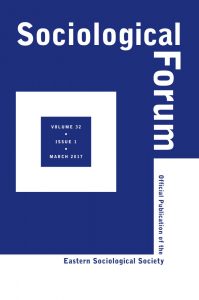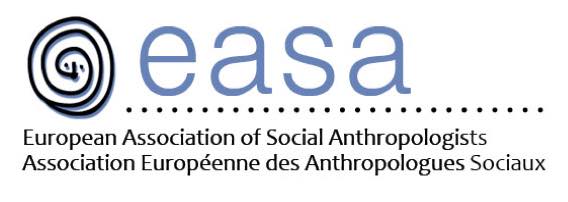Why Sociologists Should Be Critical of the New Family Structure Study
An article in Social Science Research is causing quite a stir among sociologists, and is sure to fuel the flames of the debate surrounding gay marriage. Mark Regenerus, sociologist at UT Austin, has just published results from the New Family Structure Study (also see his Slate article). He suggests that children raised in heterosexual intact families fare better than children raised by gays and lesbians. This goes against previous research which indicated the opposite: that children of gay and lesbian parents had the same or better outcomes as those raised by heterosexual parents (one study, for example, showed fewer behavioral problems among children raised by lesbians). The responses critiquing Regenerus’ work emerged quickly (for example, see a critique here). In fact, many notable sociologists who study families, parenting, and sexualities spoke out against its method and findings.
The study does a number of interesting things when trying to compare parenting in these different types of households. First, Regenerus counts as gay or lesbian any parent who has had a same-sex relationship. He does this regardless of whether or not the parent publicly (or even privately) identifies as gay or lesbian. Sexualities scholars have long questioned the attribution of identity based on behavior. Not only do people participate in a wide variety of sexual and relationship activities that vary through the life course, their identity does not always match the behaviors in which they engage. For example, we are familiar with men, popularly referred to as on the “down low,” who identify as straight, live their lives in straight marriages, yet sometimes or often have sex with other men. Moreover, many individuals identify as bisexual, not gay or lesbian or straight, and have both same- and different-sex partners. Regenerus leaves no room for either of these possibilities (or any others) in his study, thus greatly limiting the power of his “findings.”
I wish that anyone who has ever had a same-sex relationship or encounter would identify politically with the LGBT community; that would certainly cast doubt on the normalness of heterosexuality. But, to my chagrin, that just isn’t how it works and Regenerus’ study is rightly criticized for this assumption. Moreover, the homophobia implicit in this assumption—that one “gay” encounter makes you gay—is reminiscent of the racism of the one-drop rule that used to define as black anyone who had even a single drop of African blood. No one ever seems to think in the reverse terms. I know a lot of currently self-identified gays and lesbians who have had at least one opposite-sex relationship—yet Regenerus would probably see it as absurd to code them as straight.
Second, he also compares gay and lesbian parents, who may be parenting singly, with intact heterosexual parents. In his Slate article, he suggests that a common factor among children of (what he calls) gay and lesbian parents have more instability in their homes than children of non-divorced straight parents; this, he implies, may account for higher incidences of problems (like drug use, criminal behavior, and sexual victimization) among these kids. What he actually appears to be measuring, in my opinion, is the effect of instability in the home, not homosexual parenting, on children’s outcomes; not surprisingly, instability is worse for children than stability. If he wanted to measure the effect of gay and straight parenting, he would have needed to compare intact gay and lesbian homes to intact straight homes, broken gay and lesbian homes to broken straight homes (controlling, of course, for the timing of separation etc.).
The supposed findings of this study are, no doubt, going to be used by advocates that oppose gay marriage, gay adoption, and gay relationships generally. I am the child of lesbian parents. They were together before I was born and, though they are now separated, they were together until I was 19, so my childhood was as stable as Regenerus might expect from intact, biological straight families. In his blog (hosted on an evangelical Christian website), he responds to the critique that he should have studied intact, stable gay and lesbian families in order to get good results by saying that they “really didn’t exist in numbers that could be amply obtained *randomly*”. It seems to me that, rather than trying to answer questions when you don’t have the necessary data to do it, perhaps you should ask different questions. Certainly, we all do the best with the data we can get, but it is never alright to draw conclusions that your data don’t support—and Regenerus’ data simply cannot answer the question he set out to ask. And when your research questions the legitimacy of people’s families—my family—I demand higher research standards.
Further reading:







He also submitted his paper for review before data collection had even finished. See Philip Cohen’s post on this – https://familyinequality.wordpress.com/2012/06/18/regnerus-study-timeline/
Great post!
Wow, Amanda, whatever one or another study might say, your moms raised a great kid (and a smart one too! So congrats to them and kudos to you!
Meanwhile, the arc of history is with your family, and not with the Guns, God and Gays crowd. Their constituency is fading by simple attrition.
You may already know that (to their elders’ horror) even young Evangelicals support gay rights.
Great job Amanda. Conclusions given without support from data seems to be an all too familiar theme when referring to gays and lesbians. Someday may we all be people.
Great Blog post Amanda – I’ve know you & your 2 parents since you were very little and have never known a more solid and stable family. What a fine young smart woman you have become and your up bringing had alot to do with you turning out so wonderful. My 2 sons were also raised partly by myself and partner of 15 years and they are both such happy and well educated young men who are very proud of their 2 sets of parents – one of which is gay. The world would be a much better place if more people would embrace the Gay & Lesbian community as we have so very much to offer – but only the ones that choose to embrace us reap the rewards.
Great points being made here. I particularly like how you show how narrow Regenerus’s perspective has to be in order to make his conclusions. But I especially like that you share your story.
For me, using sexuality to discuss themes of parenting seems like a pretty cowardly way to express your homophobic ideas. If you are interested in healthy childhood development why not look at alcoholism, drugs, abuse, or parents who work long hours. In their book “Mobile Lives” Anthony Elliot and John Urry give ethnographic accounts of the lives of globe trotters who work 18 hours a day, 365 days a year. Consequently their kids go to boarding school and in one case they show how a daughter battles severe depression, anorexia and other problems. What I am saying is I think that authors like Regenerus should title their agendas correctly, rather than hiding behind PC arguments like “a study of good parenting.”
Thank you, Amanda, for this illuminating post! I thought the peer review process was established to prevent this kind of bad sociology. With such glaring methodological problems, how can one explain the inclusion of this article in such a prestigious scholarly journal? Am I being an idealistic graduate student, or is this what we have to look forward to as we enter the field professionally?
Here’s another great critique of the New Family Structure Study…http://www.huffingtonpost.com/debra-umberson/texas-professors-gay-research_b_1628988.html
I particularly appreciate how clearly Umberson articulates the selection bias in this study: “By casting his net so widely for children of supposedly gay and lesbian parents, and so narrowly for the children of heterosexual couples, Regnerus practically guaranteed that his study would find that those with so-called gay and lesbian parents would fare worse than those with so-called heterosexual parents. His approach selected for people who had experienced far more stress and far less stability than average for their generation, much of which arguably had little to do with their parent’s sexual orientation. They experienced more parental divorce, remarriage, and adoption (perhaps preceded by foster care). They were also more likely to be nonwhite and less economically privileged.” Also, she points out that, although Regenerus had access at his own university to a number of qualified researchers studying LGBT families, he didn’t choose to discuss the study with them. Clearly, he was determined (if even just at a subconscious level, though I have a feeling it was more intentional) to find support for the traditional family.
Though we hope that social (and other) scientists leave their prejudices aside when doing research, we have much evidence to the contrary. A long history of racially biased science (for example, scientists who systematically mis-measured cranial size and, surprise surprise, found that white people were “more intelligent” than those of other races), sexist conclusions that women’s biological “differences” (presence of a uterus, estrogen etc) make them unfit for higher education, and heterosexist research looking for “gay genes” and “lesbian ears” (geez, really?!: http://www.psy.utexas.edu/psy/articles/news-mcfadden.html)–this latest study should not shock us. But it definitely should leave us dismayed…and push us to demand soemthing better.
Uh, the fact taht in tact gay families “really didn’t exist in numbers that could be amply obtained *randomly,* doesn’t really explain why he didn’t then just compare these children from “broken” “gay” homes with the chidlren of straight folks who were divorced – can’t tell me they’re hard to find. What an incompetent ahole.
Great post Amanda. As part of your childhood community, I am very proud of your intelligence and your ability to use it to refute poor data and inaccurate conclusions. Thank you for writing this.
UPDATE: http://www.huffingtonpost.com/2013/03/10/supreme-court-gay-marriage_n_2850302.html
It has recently been revealed that this study was constructed for political purposes and is basically a fraud–the funding agency hoped to use it in the battle against gay marriage. This certainly raises some important questions about research ethics and oversight. Still waiting to see what kind of punishment will be meted out for this bad behavior (on the part of the researcher, the journal editor, the article reviewers, and the funding agency, The Witherspoon Institute).